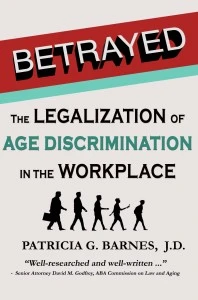 What is the difference between workplace bullying and illegal harassment?
What is the difference between workplace bullying and illegal harassment?
The major difference is that no law at present prohibits workplace bullying – despite the fact that workplace bullying can severely impact an employee’s emotional and physical well-being. And most other industrialized countries have enacted laws or regulations that address workplace bullying.
However, bullying can become illegal when it creates a hostile or abusive work environment in violation of federal or state civil rights laws, including Title VII of the Civil Rights Act of 1964.
Generally, two factors must exist:
-
The harassing conduct must create a “hostile work environment.”
- The harassing conduct must be directed toward a characteristic that is protected under federal and state civil rights laws. Title VII makes it an unlawful employment practice for an employer to discriminate against any individual with respect to his compensation, terms, conditions, or privileges of employment, because of such individual’s race, color, religion, sex, or national origin.
Therefore, workplace bullying may be illegal if it creates a hostile or abusive work environment and it is directed toward an individual who has protection under federal and state civil rights laws on the basis of race, sex, religion, national origin, etc.
What is a hostile work environment? The U.S. Supreme Court says a hostile work environment is a workplace that is permeated by discriminatory intimidation, ridicule, and insult that is sufficiently severe or pervasive as to alter the conditions of a victim’s employment and to create an abusive working environment. Harris v. Forklift Sys., 510 U.S. 17 (U.S. 1993). The Court has repeatedly said that Title VII does not prohibit simple teasing or a merely offensive utterance.
NOTE: A target of illegal harassment does not have to suffer a nervous breakdown to gain the protection of Title VII. The U.S. Supreme Court says that as long as the environment would reasonably be perceived and was perceived as hostile or abusive, there is no need for it also to be psychologically injurious. The court says psychological harm could be taken into account but is not required by the statute.
To sum up, there may be no substantive difference between the conduct that constitutes serious workplace bullying and the conduct that is acknowledged under the law to create an illegal hostile or abusive work environment. The harassing conduct can be identical, with the exact same devestating result.
The significant difference between serious workplace bullying and illegal harassment is a legal distinction pertaining to the characteristics of the target of the conduct.
Nevada State Sen. Richard Segerblom has proposed making Title VII “status blind” so that the law provides a remedy for all targets of a hostile or abusive workplace, whether or not they fall within a category that is now protected under the law.
As Shakespeare once observed: “If you prick us, do we not bleed.”
Individuals who are targets of workplace bullying may have other legal recourse, in addition to federal and state civil rights laws. All targets of workplace bullying are encouraged to consult an attorney who specializes in employment law for employees (not companies) to discuss the specific facts of their case and any potential legal remedies within their jurisdiction.




A situation that I am familiar with found that the motive of the abuser was not discriminatory, it was jealousy toward a target with a known disability. The finding was that it was bullying even though a hostile work environment was created. So it seems that the law also looks at the abuser and their motive, as well as to see if the target is in a protected class. What do you think?
Judges have a lot of discretion – which seldom works in the target’s favor. See recent post about the Supreme Court of Iowa called Ok to Fire Object of Desire. The woman was fired because the employer was attracted to her. The all male court decided it was a personal relationship issue and not sex discrimination.
Yes, the finding I am referencing is an external investigation where the finding was extreme bullying conduct, nothing found to be illegal though, resulted in a transfer and ended the reporting relationship-even though significant medical damages occurred.
I did read about the Iowa situation. Great example of the point of discretion. People who return to the workplace after a medical condition are at high risk for more medical damages and a decline if they are bullied. People, returning to the workplace, able to work though still in a recovery mode, would be stunned to see how unprotected they are by the current ADA laws in a bullying situation with unresponsive administrators. The act of getting help, starting an investigation, having the burden of proof, dealing with getting appropriate accommodations, can result in creating major set backs and health damage to a person who is weakened and already compromised. I would like employees , the public, to know this. I think this rises to a level of a public health hazard. If the public, the medical community, and other vested parties were aware of the costs and damages, perhaps more focus on responding to bullying could occur.
I fully agree with your reply, Susan. Employers can facilitate bullying and even punish targets for whistleblowing despite credible documentation. It’s a known cause for worker suicides as well, because it leaves distressed workers hopeless and in despair. Thanks!
Reblogged this on and commented:
The other day I posted an article that discusses when bullying is illegal in the workplace. The following article written by Patricia Barnes, J.D., does a better job in explaining when bullying is a violation of federal (or state) anti-discrimination laws. I recently purchased Patricia’s book and look forward to be enlightened by her expertise on this topic. Patricia’s advice is to consult an attorney who specializes in employment law is important to note.
My son was harassed by his supervisor for a number of years until he could take it no longer. He was invited to come into another department by that department supervisor because the quality of my son’s work is superior and his work ethics are impeccable. But when the HR department asked the abusive supervisor about my son’s work ethics and the quality of his work that supervisor threw my son under the bus. Many workers at the company suffered at the hands of the bully supervisor and still do. So his behavior isn’t a secret. The heartbreak of the situation is that the HR department listened to one of their employees who is getting by with murder….almost literally. Our son was attacked one morning by his supervisor in a way that was completely demeaning and belittling. He simple picked up his things and walked off the job. He’s never gotten over it and feels that he should have stayed and just taken the abuse. Does anyone out there know what might be able to be done about such travesties in companies? How can this be allowed to go on and on making peoples lives unbearable in the work place? Shouldn’t companies be forced by some law to make a workplace safe and pleasant. Life is too short to just endure!